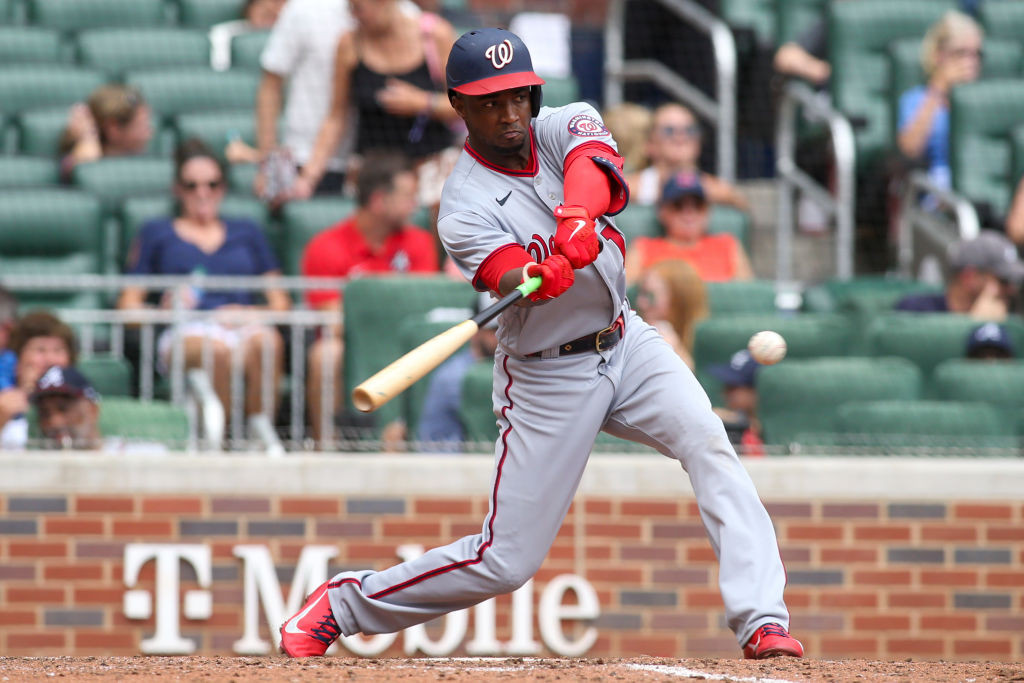It’s another deadline day across Major League Baseball, this one for all arbitration-eligible players to either agree to terms on their 2023 salaries or exchange figures with their clubs and file for an arbitration hearing.
How does that work? This applies only to players with more than three years but fewer than six years of big league service time. (There are also a group of players with fewer than three years who qualify early for arbitration, the so-called “Super Two” players, but the Nationals have nobody in that category this year.)
These players don’t have the right to become free agents yet, but they do have the right to negotiate their salaries. It’s up to them and their teams to find common ground and agree to a dollar amount. If they can’t, each side submits an offer, then a hearing is set for February, at which time a three-judge panel will pick a winner and declare the player’s salary.
A couple of things that are important to remember: 1) If a player doesn’t agree to terms today, that doesn’t mean he’s no longer under contract. He’ll still be part of the team this season, it’s just going to take a while longer to determine his salary. 2) Players and teams who don’t strike a deal today must file for arbitration, but they’re still free to continue negotiating up until the hearing and could still work something out before ever appearing before the panel. This is actually quite common.
So, which players does this apply to? The Nationals have 10 players with three to six years of service time, but four of them have already agreed to 2023 salaries, either because they were cut loose by other organizations and signed as free agents (Jeimer Candelario, $5 million; Dominic Smith, $2 million) or because they negotiated deals prior to today’s deadline (Tanner Rainey, $1.5 million; Ildemaro Vargas, $975,000).
So that leaves six unsigned arbitration-eligible players facing today’s deadline. Here they are, with their 2022 salaries and projected 2023 salaries (per MLB Trade Rumors) …
Victor Robles: $1.65 million, $2.5 million
Lane Thomas: $723,600, $2.1 million
Kyle Finnegan: $725,900, $2 million
Carl Edwards Jr.: $700,000, $1.6 million
Victor Arano: $900,000, $1 million
Hunter Harvey: $700,000, $1 million
You wouldn’t think any of these should be too complicated. All of these players are either in their first or second year of arbitration, or haven’t established themselves as star players who command much higher salaries (and thus could have a wider disparity in offers from the team).
Robles probably is the toughest case, because the center fielder clearly hasn’t lived up to his potential yet but is all but guaranteed a raise via the arbitration process. The two sides could have some trouble finding a common number, but even if they can’t accomplish that today, the disparity probably wouldn’t be so great that it would prevent them from hashing it out before going to a hearing.
Thomas and Finnegan are first-time arbitration players, and they will get nice bumps from their six-figure salaries of 2022. Edwards is in his third and final year of arbitration, and he’s coming off a nice bounceback season after joining the Nationals on a minor league deal.
Arano missed a large chunk of time with injuries last season, so his raise will be minimal. Harvey should get more of a bump in his first year of arbitration eligibility, though he still remains pretty unproven at the big league level.
By accepting you will be accessing a service provided by a third-party external to https://www.masnsports.com/





